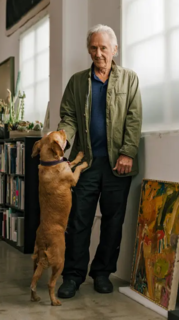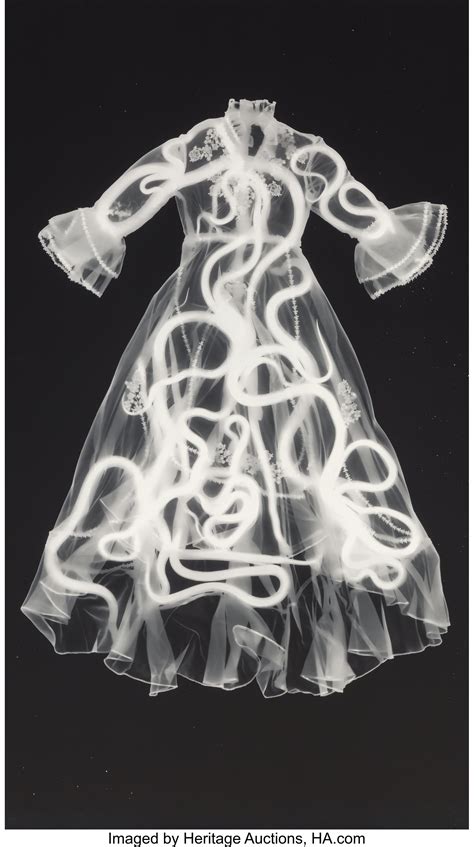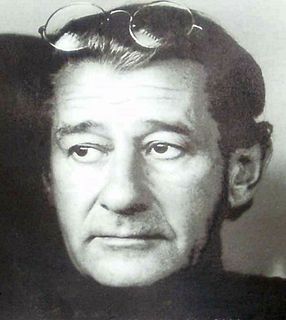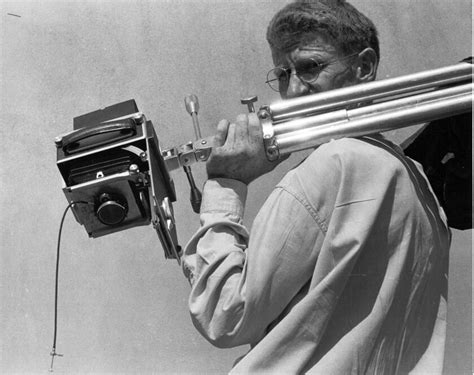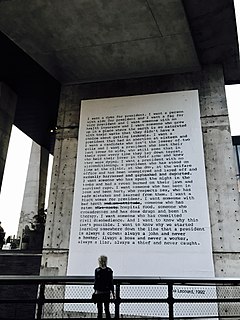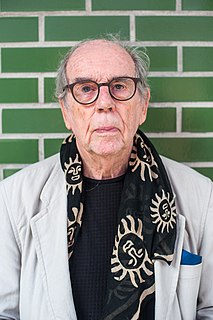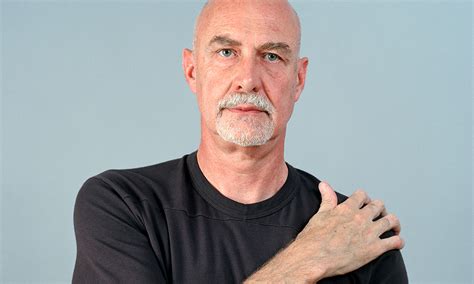A Quote by Edward Ruscha
Above all, the photographs I use are not arty in any sense of the word. I think photography is dead as fine art; its only place is in the commercial world, for technical or information purposes.
Quote Topics
Related Quotes
I was attracted to photography because it was technical, full of gadgets, and I was obsessed with science. But at some point around fifteen or sixteen, I had a sense that photography could provide a bridge from the world of science to the world of art, or image. Photography was a means of crossing into a new place I didn't know.
A good print is really essential. I want to take strong documentary photographs that are as good technically as any of the best technical photographs, and as creative as any of the best fine-art photographs. [...] I don't want to just be a photo essayist; I'm more interested in single images...ones that I feel are good enough to stand on their own.
I find that when one has worked long enough, technical know-how becomes almost irrelevant. In photography, it's not difficult to reach a technical level where you don't need to think about the technique any more. I think there is far too much literature and far too much emphasis upon the techniques of photography. The make of camera and type of film we happen to use has little bearing on the results.
I went back to photography in the 1990s. But from the 60s to the 90s I didn't really take any photographs at all, unfortunately. During that period I lived in France, I lived in England, I lived all over the place in different cities. I didn't take any photographs and because I felt I had really accomplished everything that I wanted to in photography during the period between 61 and 67.
Some of my pictures are poem-like in the sense that they are very condensed, haiku-lik. There are others that, if they were poetry, would be more like Ezra Pound. There is a lot of information in most of my pictures, but not the kind of information you see in documentary photography. There is emotional information in my photographs.
"Though many painters and sculptors talk glibly of "going in for photography," you will find that very few of them can ever make a picture by photography; they lack the science, technical knowledge, and above all the practice. Most people think they can play tennis, shoot, write novels, and photograph as well as any other person - until they try."
In previous ages the word 'art' was used to cover all forms of human skill. The Greeks believed that these skills were given by the gods to man for the purpose of improving the condition of life. In a real sense, photography has fulfilled the Greek ideal of art; it should not only improve the photographer, but also improve the world.
Let us guard against saying that there are laws in nature. There are merely necessities: there is no one who commands, no one whoobeys, no one who transgresses. Once you understand that there are no purposes, then you also understand that nothing is accidental: for it is only in a world of purposes that the word "accident" makes sense.
Nursing is an art: and if it is to be made an art, it requires an exclusive devotion as hard a preparation as any painter's or sculptor's work; for what is the having to do with dead canvas or dead marble, compared with having to do with the living body, the temple of God's spirit? It is one of the Fine Arts: I had almost said, the finest of Fine Arts.
[Cindy Sherman's] photographs reverse the terms of art and autobiography. They use art not to reveal the artist's true self but to show the self as an imaginary construct. There is no real Cindy Sherman in these photographs; there are only the guises she assumes. And she does not create these guises; she simply chooses them in the way that any of us do.
Any information is valuable to the degree that you can use it. In other words, any information is valuable to the degree that you can make it yours. Scientology does not teach you. It only reminds you. For the information was yours in the first place. It is not only the science of life, but it is an account of what you were doing before you forgot what you were doing.
